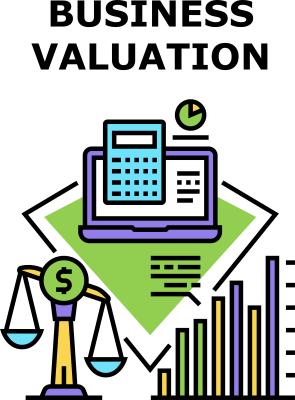Demystifying Business Valuations: A Guide for Informed Decision-Making
Valuable information all business owners need

As a business owner, understanding the value of your company is crucial for various scenarios, from transactions to tax reporting, financial reporting, and even potential litigation. In this comprehensive guide, we’ll address ten commonly asked questions about business valuations, providing you with the knowledge you need to navigate this important aspect of business ownership.
1. Why are business valuations needed?
Business valuations serve a variety of purposes, including exit planning, buy-sell agreements, financing, tax reporting, and litigation. Being aware of the specific need for a valuation ensures that it serves its intended purpose effectively.
2. What is USPAP? What are business valuation standards?
Qualified business appraisers adhere to the Uniform Standards of Professional Appraisal Practice (USPAP), recognized as the official source of appraisal standards in North America. This adherence reinforces their expertise and enhances the credibility of their work.
3. How do business appraisers determine value?
Business appraisers employ three primary approaches: the Income Approach, Market Approach, and Asset Approach. Understanding these methods provides insight into how your business's value is derived.
4. Is the date of a valuation important? Do business valuations expire?
A business valuation is a snapshot in time, reflecting the estimated value of a company at a specific moment. While valuations do not technically expire, the relevance of the derived value may diminish over time due to changing circumstances.
5. Can a business have more than one value?
Yes, a business can hold multiple values, contingent on the perspective of potential buyers. Different buyers may attribute varying levels of value based on their unique circumstances and objectives.
6. How do I judge a business appraiser’s qualifications?
Accredited business appraisers, holding designations like Certified Business Appraiser (CBA) and Accredited Senior Appraiser (ASA), possess the training and expertise needed to deliver accurate and defensible valuation reports.
7. How do I critique a business valuation?
A valuation should undergo a reasonability test, such as a purchase price justification, to ensure its validity and practicality. This test evaluates whether a lending institution could finance the company at its estimated value to a qualified buyer.
8. What information is needed to perform a business valuation?
Accurate valuations require comprehensive financial documents, including profit and loss statements, balance sheets, tax returns, forecasts or projections, and other relevant information about the company's operations.
9. What else can owners use a business valuation for?
Beyond transactional purposes, business valuations offer invaluable insights into a company's performance, risk assessment, and strategies for enhancing its operational and financial standing.
10. How much does a business valuation cost?
The cost of a business valuation can vary widely based on factors such as company size, complexity, and the purpose of the valuation. Most certified appraisers provide project-based or hourly-rate quotes, with external expenses billed separately.
A comprehensive understanding of business valuations empowers you as a business owner to make informed decisions, whether you're planning for the future, navigating tax obligations, or considering potential transactions. By recognizing the importance of valuations and seeking out qualified appraisers, you position yourself for success in the dynamic world of business ownership.